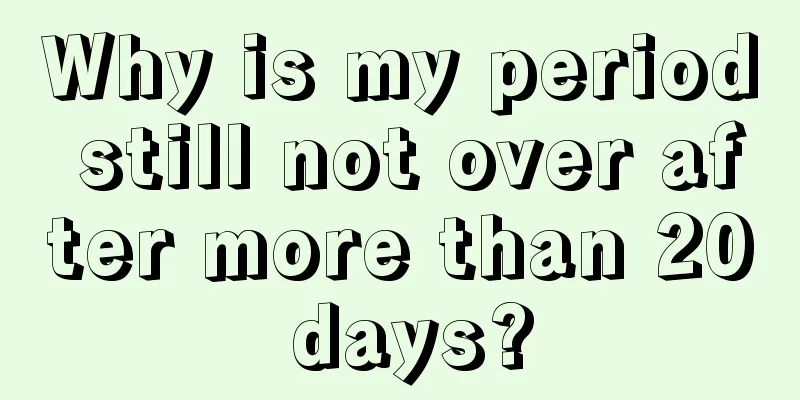Shanxi's "sleeping province" has become popular! It turns out that there is such a thing as a "nap gene"

|
It is said that the two things that Shanxi people cannot live without are vinegar and naps. Shanxi people attach great importance to naps to the point that "if you don't eat on time, you might go hungry", because even restaurant staff and food delivery boys have to take naps. Image source: Bailu Video When friends from other places were confused and asked, "Does this nap have to be taken?", friends from Shanxi were also lamenting, "Why isn't the afternoon nap uniform across the country?" Image source: A social platform What exactly causes Shanxi's unique "nap culture"? The most common explanation is that Shanxi people's diet is mainly based on carbohydrates such as rice and flour, which makes them more prone to physiological reactions of sleepiness after meals. From a biological point of view, is it really easier to feel sleepy after eating foods with high starch content? “Food-dizzy”? “Carbohydrate-dizzy”? People do feel sleepy and want to sleep after eating high-carb and greasy foods. This physiological phenomenon is called postprandial somnolence, also jokingly called "foodcoma." There is a long-standing explanation for "food dizziness": after eating too much, the blood flows to the stomach, the brain is deprived of oxygen, and you start to feel sleepy. Unfortunately, this statement is not logically valid. Similar to digesting food in the stomach, a large amount of blood will flow to the muscles during aerobic exercise. If the above statement is true, then the more you run, the sleepier you will feel. But in fact, aerobic exercise makes people clear-headed. In addition, studies have shown that the blood supply to the carotid artery does not change significantly after a meal. In addition to the "oxygen supply" hypothesis, there is also an explanation advocated by "acid-base theory" enthusiasts: after a meal, due to the consumption of gastric acid, the blood becomes alkaline, leading to alkalosis, which makes people dizzy. Copyright images in the gallery. Reprinting and using them may lead to copyright disputes. This statement is of course incorrect, because the human body has a very stable buffer system, and the pH value of the blood will not change in one meal. Moreover, if this logic is true, then drinking soda water and carbonated drinks becomes a very dangerous thing. Since the above two hypotheses are not reliable, what is the truth about "carb dizziness"? There are currently two mainstream hypotheses in academia: 1. Hormone hypothesis After eating a large amount of carbohydrates, blood sugar rises rapidly, inhibiting the secretion of hypocretin. This hormone is also called orexin. As the name suggests, it is a hormone that promotes eating. Because you need to stay awake during eating, it can also regulate sleep. In addition, within two hours after a meal, the content of cholecystokinin increases significantly. It is a satiety signal of the body and can make people feel sleepy. 2. Vagus nerve hypothesis When food is "stuck" in the gastrointestinal tract, the vagus nerve distributed in the stomach wall and intestinal wall is activated by mechanical force, and then stimulates sleep centers such as the hypothalamus, producing drowsiness. Of course, there are many other hypotheses, but no matter which hypothesis it is, it can explain why the Shanxi people who love to eat noodles are so "sleepy". However, if you always feel drowsy after meals, in addition to the above physiological mechanisms, you should also be alert to diseases such as diabetes, postprandial hypotension, hypothyroidism and cardiovascular disease. Wait a minute Love of naps may be due to genes?! In fact, whether to take a nap or not is influenced not only by culture but also by genes. A study on twins found that napping has a strong genetic similarity. Inspired by this study, researchers at Massachusetts General Hospital in the United States launched a large-scale genome-wide association analysis to find out which genes make people more likely to take naps. This study used a genetic database containing 450,000 people and asked them to fill in their nap needs. 38.2% of them filled in "sometimes" naps, 5.3% filled in "often" naps, and the rest "never/rarely" naps. After comparing the nap needs of different people and their genome sequences, it was found that there are 123 sites related to naps. After further subdividing these gene loci, the researchers found that people who tend to take naps frequently can be divided into three categories: Long sleepers: Some people naturally need longer sleep than others; Light sleepers: Some people have poor sleep quality at night and need to take a nap to make up for it; Early risers: Some people wake up too early and need to catch up on some sleep to recharge. The researchers also found that napping is associated with some clinical diseases. For example, people with obesity and high blood pressure tend to take naps more frequently. In addition, the gene loci associated with napping are closely linked to neural signals associated with wakefulness, the most notable of which is the orexin mentioned above. It seems that under the dual influence of genes and diet, some people are destined to take a nap. Healthy napping habits The genetic determinism of naps tells us that some people who love to take naps really feel that their bodies are sleep deprived and rely on naps to make up for it. This is just like some people have low nutrient absorption efficiency or high daily energy consumption, which means they eat more than others. So, instead of forcibly fighting against the body, it is better to satisfy the physiological needs and take a nap when you feel sleepy! What's more, naps can bring many benefits, and some scientists even call naps "power naps". Studies have found that when sleepiness strikes and you feel groggy, just 7 to 10 minutes of sleep can significantly improve alertness and reduce your body's sleepiness. This is because "napping" can quickly eliminate the brain's inhibition of "wake cells." People who stay up late and work overtime can also relieve fatigue by taking a nap. As the saying goes, sharpening the knife makes the work easier, and a short nap will increase work efficiency. Copyright images in the gallery. Reprinting and using them may lead to copyright disputes. Napping not only has quick positive effects, it also helps long-term health. A study published in the journal Sleep Health showed that people who take naps have younger brains when they get older and are less likely to develop Alzheimer's disease. The study comprehensively analyzed the genome, brain volume, and memory data of 370,000 British people aged 40 to 69, and found that people who love to take naps have larger brain volumes than their peers. Because brain volume measurements can be regarded as an indicator of neurodegenerative diseases, after the age of 35, the volume of the whole brain will steadily decrease with age (0.2% per year, and ≥0.5% per year after the age of 60). Based on this theoretical calculation, it was found that the brains of people who are used to taking naps are 2.6 to 6.5 years younger! The researchers said that this difference is roughly equivalent to the difference in brain volume between people with normal cognitive function and those with mild cognitive impairment. However, it should be noted that although taking a nap has many benefits, taking a nap for too long, taking a nap at an inappropriate time, or taking a nap in an uncomfortable position can actually cause health problems. (Click here for details → Never take a nap for more than this length of time, or you may get more tired the more you sleep! It is not recommended for these types of people to take a nap →) This article is a work of Science Popularization China-Starry Sky Project Produced by: Science Popularization Department of China Association for Science and Technology Producer|China Science and Technology Press Co., Ltd., Beijing Zhongke Xinghe Culture Media Co., Ltd. Author: Hardy, PhD in Neurobiology, Zhejiang University Reviewer: Li Jingjing Professor and Chief Physician, Department of Neurology, Beijing Tiantan Hospital |
<<: Young people, why do you like staying up late more and more?
Recommend
What kind of person is the quality of bamboo like? How to grow bamboo?
Bamboo is born with joints, symbolizing the spiri...
How is the City of Decay Heat Eyeshadow Palette? Review of the City of Decay Heat Eyeshadow Palette
If you don't know what eyeshadow palette to b...
What are the benefits of massaging your breasts frequently?
Nowadays, people's aesthetic taste is actuall...
Normal female physical examination items
Every woman must go to the hospital for regular p...
Why does a woman feel a sharp pain in her lower abdomen when she sits down?
In life, some women often experience stabbing pai...
Do you know the harm of drinking coffee for a long time?
Coffee is often drunk by many people in daily lif...
Nielsen: Facebook lost 10 million users in the U.S. in 2012
Facebook UK visitor statistics On May 1, 2013, ac...
Can I eat yuba during menstruation?
Yuba is a soy product made from soybeans. It cont...
What attractions are there near the Yellow Crane Tower?
The Yellow Crane Tower is named after the "Y...
Can I eat passion fruit when my period comes?
Passion fruit is a very fragrant fruit. The uniqu...
How long does a postpartum woman usually sweat?
The body of a postpartum woman is very fragile an...
What are the signs of pregnancy?
In the early stages of pregnancy, many people do ...
What causes appendage pain?
Many women experience adnexal pain during menstru...
The Sherlock Holmes of Oncology: Genetic Testing
The 29th National Cancer Prevention and Treatment...
What is the cause of brown vaginal discharge and abdominal distension and pain?
In gynecology, leucorrhea is transparent in color...









